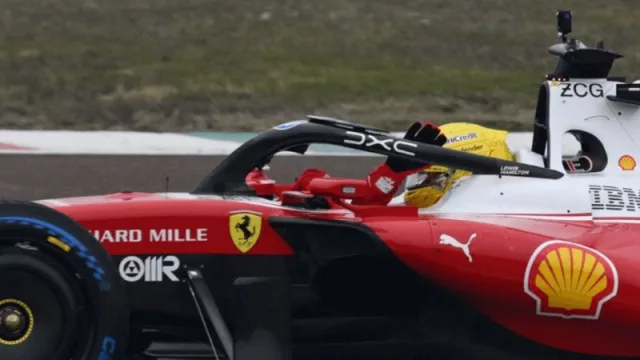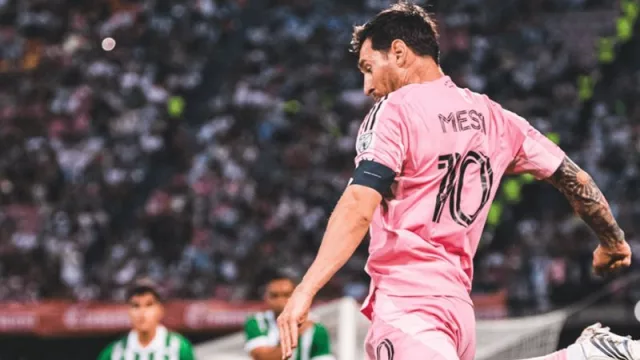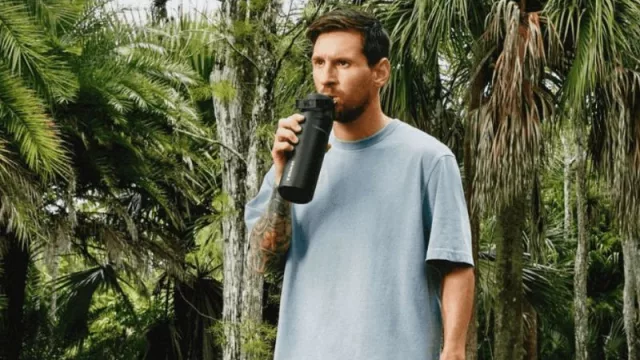The feat pulled off by La Pulga’s team—earning an epic draw against Palmeiras in a heart-stopping finish—is more than just a result; it’s a golden opportunity to understand how sports have become a catalyst for economic development, branding, and international positioning in an increasingly competitive and sophisticated market.
While Luis Suárez makes a gesture i
implying that media, players, and journalists will have to “deal with” certain statements, Inter Miami—the “supposed underdog”—gets to enjoy the thrill of facing the best team in the world today… and that’s something no one can take away from Messi’s team, from Suárez, or from Beckham.
Garzas are the main actors, while others are just watching from their TVs.
In a world where football transcends the pitch and becomes a global impact phenomenon, Miami’s Inter Miami securing a spot in the knockout rounds with Lionel Messi in the starting eleven doesn’t just fuel sports passion—it ignites a powerful engine of business, marketing, and strategic growth across Miami and Latin America.
The Impact of Soccer on Business Strategy in Miami and Latin America
Soccer, regarded by experts as both a social and economic phenomenon, has evolved into a key strategic asset for companies and brands across Miami and Latin America. Messi’s presence in Inter Miami not only boosts the team’s visibility but also cements Miami’s role as a hub of innovation, investment, and Latin culture. The arrival of international stars creates a multiplier effect across sectors like tourism, retail, food & beverage, and tech.
A clear example? Miami’s stadium has become a magnet for sporting and cultural events, drawing thousands of tourists and both Latino and Anglo consumers.
The “American Dream” narrative fused with soccer passion offers unique business opportunities—ranging from hyper-targeted marketing campaigns to global brand partnerships.
According to Deloitte, soccer generates over $3 billion annually in direct revenue across Latin America and Miami, with an 8% year-over-year growth. Messi’s arrival has not only revolutionized sports but also spurred a 25% increase in hotel bookings during matches and related events.
Insights from experts like Simon Kuper, in his book Football Challenges, highlight how the beautiful game acts as a catalyst for cultural identity and entry into emerging markets. In Miami, where Latinos make up roughly 70% of the population, this presents a prime opportunity for brands looking to deepen their regional footprint.
For example, Adidas’ exclusive Messi-themed merchandise line for Inter Miami boosted sales by 40% across physical stores and digital platforms in both Latin America and the U.S.
Turning Passion Into Economic Power
Today’s football scene in Miami, centered around Messi, offers a strategic window for those eager to turn passion into tangible results. Reaching the knockout stage of the Club World Cup isn’t just a sports achievement—it’s a launchpad for expanding business partnerships, marketing strategies, and regional influence. Tapping into this momentum requires vision, innovation, and a narrative that emotionally connects with the vibrant Latin and Anglo-Latino audiences.
Suscribete:
-
Subscribe for free to receive the most strategic, agile, and valuable insights at: https://infonegocios.miami/suscribite-al-newsletter
Infonegocios NETWORK: 4.5 million Anglo-Latinos united by a passion for business.
Contact Infonegocios MIAMI:
Read Smart, Be Smarter!












Tu opinión enriquece este artículo: